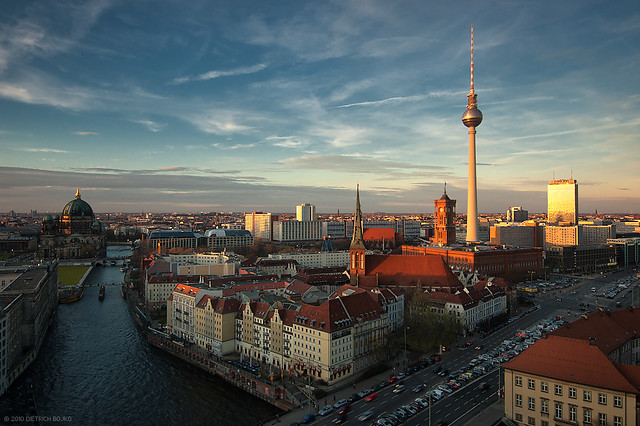Re: Trans National Place (Winthrop Square) Part 2

Maybe its time that we changed that.Height is not what Boston is about.
Maybe its time that we changed that.Height is not what Boston is about.
A city skyline should not be determine by the tallest structure in the city, but the overall size and make up of the skyline. With that said, Vancouver beats Boston hands down with its size and number. Calgary, I would say is comparable to Boston.Firstly, I agree that quality and pedestrian experience matter more than height.
However, I also agree that a skyline does have something important to say about economic vitality ... or at least perceived growth prospects (obviously this is less so in places like China or the MidEast where it's also about government-financed pissing contests to build uneconomical, empty buildings).
That said, you left out Miami and even Vegas, which according to the link have larger skylines. Also on the continent are Toronto and Calgary (we beat Vancouver and Montreal), which are in an economy that is largely part of the US economy ... or at least *was* until Canada over the last 10 years exploited its resources wealth while the US dithered in that and Canada began seeking out more-reliable markets farther afield.
A city skyline should not be determine by the tallest structure in the city, but the overall size and make up of the skyline. With that said, Vancouver beats Boston hands down with its size and number. Calgary, I would say is comparable to Boston.


^^ all posters
Height is not what Boston is about. I submit that this doesn't make it any lesser than say, Philadelphia or OKC.
Your yearnings for height will never be satisfied when you compare it to other cities.
GET OVER IT
The usual Berlin schtick.
Frankfurt is nothing but a useless financial metropolis, void of culture. Tall towers certainly don't make a city.
Which city is a million times better to be in and experience? Which city has culture oozing out of its ears? Berlin. I saw Berlin as being Boston just 10x larger and older.
Frankfurt is nothing but a useless financial metropolis, void of culture. Tall towers certainly don't make a city.
I think the buildings around Trans-national will suffocate the building from ever standing out. It might have the height and could possibly be a great building. I just don't think the location will be Iconic. That is my opinion.
I have been wrong many times.
I have worked on Federal Street. That street is not that appealing to me.
Berlin:...
Frankfurt:...
Which city is a million times better to be in and experience? Which city has culture oozing out of its ears? Berlin. I saw Berlin as being Boston just 10x larger and older.
Frankfurt is nothing but a useless financial metropolis, void of culture. Tall towers certainly don't make a city.
Ich bin ein Dunkin Donut
Berlin is certainly more fun, certainly has more "culture," etc. (This is due at least in part to the fact that both East and West used it as a Potemkin village to show the other that they were culturally/morally/economically superior during the Cold War, so the city has two of everything -- operas, concert halls, etc. -- even though its population and economy struggle to justify this.)
And you are right that "tall towers don't make a city." However, as a business, transportation and population hub, Frankfurt is many times more important than Berlin. While that isn't by any measure the case *because* Frankfurt has tall buildings, nonetheless, those towers allow many of Germany's biggest companies to house large amounts of workers in the city, and make it an attractive hub for businesses asking where to locate themselves.
Tall towers don't necessarily make a city vital (though in adding density -- at least of workers, if they're largely commercial buildings -- they do support added population), but they do help to keep its economy robust. Businesses seem to be moving to Berlin now that the return of the federal German government has added to its importance, but for a long time there have been questions about razing empty buildings, closing down cultural institutions, etc., because the city didn't have the population or economy to support them. Frankfurt's economy and population have long been humming, and having the commercial space to accommodate them is a necessary factor.
I don't want to get into this, but Berlin goes back to 1237. Boston was founded in the 1600s.
My whole stance on towers is that I encourage smart growth (key projects such as TransNational Place) and not reckless building of towers for the sake of building towers. Boston actually one-ups Berlin in this sense. We have a strong financial/business center, rich culture, and are a major commercial/tourist draw.
Responding to the rhetoric question posed - No, we should not tear down the Hancock and replace it with something else. The Hancock was smart growth and Boston took the opportunity to construct an iconic landmark. I'd rather have the soaring well-designed Hancock over 3 bland 250-300 footers (even if they "stretched" the skyline).
Since Berlin was surrounded by the Warsaw Pact -- it could not be counted on.
Itch -- by your own analysis -- Frankfurt was the true "Potemkin Village"
Since Berlin was surrounded by the Warsaw Pact -- it could not be counted on.
As a result -- Bonn became the political capital, but it was small and access was limited. Munich was too far south and away from the rest of the Post WWII Westeern Euro core.
As a result -- it had to be Frankfurt:
a) major US Air Base (Rhein-Main Air Base) -- aka the 'Gateway to Europe"
b) US Army's 97th General Hospital -- now US Consulate Generalc) HQ of first US Army Administration -- SHAEF Hqs, mid-1945
d) as it was alredy big in banking it aturally became the center of finance beginning with the Marshall Plan
